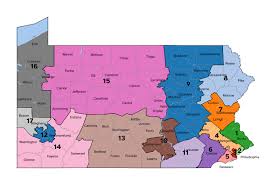Immersing Yourself in a Cultural Experience: A Journey of Discovery
Traveling to new places opens up a world of opportunities for cultural exploration. Whether you find yourself in a bustling metropolis, a quaint village, or a remote corner of the globe, embracing and engaging with the local culture can be an enriching and transformative experience.
A cultural experience is not just about visiting famous landmarks or trying exotic cuisine. It goes beyond that, delving into the heart and soul of a community, allowing you to connect with its people, traditions, and way of life. It’s about stepping out of your comfort zone and embracing unfamiliar customs, languages, and perspectives.
One of the most powerful aspects of immersing yourself in a cultural experience is the opportunity to broaden your horizons. By interacting with locals, you gain insights into their values, beliefs, and daily routines. This exposure challenges preconceived notions and expands your understanding of the world.
Language plays a significant role in cultural immersion. Learning even basic phrases can break down barriers and create meaningful connections with locals. Communicating in their native tongue shows respect for their culture while also providing you with a deeper understanding of their expressions and nuances.
Participating in local traditions and festivities is another way to fully immerse yourself in a culture. Whether it’s joining in traditional dances, witnessing religious ceremonies, or celebrating seasonal festivals, these experiences offer glimpses into the collective identity of a community. You become an active participant rather than just an observer.
Cuisine is often considered one of the highlights of any cultural experience. Sampling local dishes not only tantalizes your taste buds but also provides insight into culinary traditions passed down through generations. Exploring food markets or taking cooking classes can be an excellent way to learn about ingredients unique to the region while gaining appreciation for the artistry behind each dish.
Art, music, and dance are universal languages that transcend borders. Attending performances or visiting museums and galleries allows you to immerse yourself in the artistic expressions of a culture. From traditional folk music to contemporary art installations, these experiences offer a glimpse into the creative spirit of a community, often reflecting its history, struggles, and aspirations.
While immersing yourself in a cultural experience can be incredibly rewarding, it’s essential to approach it with an open mind and respect for local customs. Embrace differences without judgment and be willing to learn from the perspectives of others. Remember that you are a guest in their world, and by showing genuine curiosity and appreciation, you create meaningful connections that can last a lifetime.
At its core, a cultural experience is about fostering empathy and understanding. It allows you to see the world through different lenses and challenges your own assumptions. By immersing yourself in diverse cultures, you gain a deeper appreciation for the beauty of human diversity while realizing our shared humanity.
So, whether you’re exploring the vibrant streets of Tokyo or hiking through the remote villages of Peru, embrace every opportunity to engage with local communities. Step out of your comfort zone, listen intently, ask questions, share stories, and allow yourself to be transformed by the rich tapestry of cultures that our world has to offer.
Exploring Cultural Experiences: Frequently Asked Questions
- How do you use cultural experience in a sentence?
- What is cultural experiences?
- What is cross-cultural experience?
- What are some cultural experiences?
How do you use cultural experience in a sentence?
One can gain a deeper understanding of a country’s history and traditions through immersive cultural experiences.
What is cultural experiences?
Cultural experiences refer to the activities, interactions, and engagements that allow individuals to immerse themselves in different aspects of a particular culture. These experiences can include exploring the traditions, customs, arts, music, food, language, and history of a specific community or region.
Cultural experiences go beyond mere observation or tourism. They involve actively participating in the local culture, engaging with its people, and gaining a deeper understanding of their way of life. By embracing cultural experiences, individuals can broaden their perspectives, challenge their own assumptions, and develop a greater appreciation for the diversity of human expression.
These experiences can take various forms depending on the context and location. They may involve attending festivals or ceremonies, trying traditional dishes or beverages, learning traditional crafts or dances, visiting museums or historical sites, interacting with locals through conversations or language exchanges, or even living with host families to truly immerse oneself in everyday life.
Cultural experiences are not limited to travel; they can also be found within one’s own community. Many cities have diverse neighborhoods or cultural centers that offer opportunities to explore different cultures without leaving home. Engaging in cultural exchange programs or joining local cultural organizations can also provide avenues for experiencing and appreciating diverse cultures.
The significance of cultural experiences lies in their ability to foster empathy, understanding, and respect for different ways of life. They promote cross-cultural dialogue and create connections between people from various backgrounds. Cultural experiences help break down stereotypes and build bridges between communities by highlighting our shared humanity.
Overall, cultural experiences offer individuals the chance to step outside their comfort zones and engage with the richness and complexity of different cultures. Through these immersive encounters with diverse traditions and perspectives, individuals can gain a deeper appreciation for the world’s cultural tapestry while fostering personal growth and intercultural understanding.
What is cross-cultural experience?
Cross-cultural experience refers to the exposure and engagement with different cultures, typically through interactions with people from diverse backgrounds, traditions, and customs. It involves navigating and understanding the similarities and differences between one’s own culture and that of others.
A cross-cultural experience can occur in various contexts, such as traveling to foreign countries, living or studying abroad, working with multicultural teams, or even interacting with individuals from different cultural backgrounds within one’s own community. It goes beyond superficial observations of customs and traditions by fostering deeper connections and understanding between individuals from different cultural backgrounds.
Cross-cultural experiences provide opportunities for personal growth and learning. They allow individuals to develop empathy, open-mindedness, adaptability, and effective communication skills. By immersing oneself in unfamiliar cultural environments, one gains new perspectives on social norms, values, beliefs, and ways of life.
These experiences often challenge preconceived notions or stereotypes that individuals may hold about other cultures. It encourages self-reflection and a reevaluation of one’s own cultural identity. Through cross-cultural interactions, individuals can gain a greater appreciation for diversity while recognizing the shared human experiences that connect us all.
Moreover, cross-cultural experiences contribute to the development of intercultural competence. This includes the ability to navigate cultural differences effectively, communicate across cultures sensitively, resolve conflicts constructively, and build meaningful relationships with people from diverse backgrounds.
In today’s globalized world where interactions between cultures are increasingly common in various domains such as business, education, travel, or social settings – having cross-cultural experience is highly valued. It promotes mutual understanding among people from different cultures while fostering cooperation and collaboration on a global scale.
Overall, engaging in cross-cultural experiences allows individuals to broaden their horizons by stepping outside their comfort zones. It encourages curiosity about other cultures while promoting respect for diversity. By actively seeking out these opportunities for cross-cultural engagement, individuals can enhance their personal growth while contributing to a more inclusive and interconnected world.
What are some cultural experiences?
There are countless cultural experiences to be had around the world. Here are a few examples:
- Festivals and Celebrations: Participating in local festivals and celebrations provides a unique insight into a culture’s traditions, customs, and values. Whether it’s witnessing the colorful Holi festival in India, the vibrant Carnaval in Brazil, or the lantern-lit festivities of Diwali in Nepal, these events offer an immersive cultural experience.
- Historical Landmarks: Exploring historical landmarks allows you to delve into a culture’s past and understand its significance. From visiting the Great Wall of China or the Pyramids of Egypt to exploring ancient ruins like Machu Picchu in Peru or Angkor Wat in Cambodia, these sites offer glimpses into rich histories and architectural marvels.
- Culinary Adventures: Sampling local cuisine is an excellent way to experience a culture’s flavors and culinary traditions. Whether it’s indulging in street food markets, taking cooking classes, or dining at traditional restaurants, trying regional dishes offers insights into local ingredients, cooking techniques, and cultural preferences.
- Traditional Arts and Crafts: Engaging with traditional arts and crafts provides an opportunity to witness skilled artisans at work while learning about their techniques and cultural significance. From pottery-making in Japan to carpet-weaving in Morocco or mask-carving in Africa, these experiences showcase centuries-old craftsmanship.
- Music and Dance Performances: Attending music concerts or dance performances immerses you in a culture’s artistic expressions. Whether it’s listening to classical music at Vienna’s State Opera House or experiencing traditional flamenco dancing in Spain, these performances capture the essence of a culture’s creativity.
- Local Markets: Exploring bustling markets allows you to engage with locals while discovering regional products and handicrafts. From floating markets in Thailand to spice bazaars in Morocco or flea markets in Paris, these vibrant hubs offer glimpses into daily life while providing opportunities for cultural exchange.
- Traditional Clothing and Fashion: Trying on traditional clothing or observing fashion trends can be an intriguing cultural experience. From donning a kimono in Japan or a sari in India to witnessing fashion shows during Paris Fashion Week, these encounters showcase the unique styles and aesthetics of different cultures.
- Religious Sites and Practices: Visiting religious sites allows you to understand a culture’s spiritual beliefs and practices. From exploring Buddhist temples in Thailand or Hindu temples in Bali to witnessing prayer rituals at mosques or cathedrals, these experiences offer insights into the role of faith in people’s lives.
Remember, cultural experiences are not limited to these examples. Each destination has its own distinct offerings, and every interaction with locals can provide valuable insights into their way of life. The key is to approach these experiences with an open mind, respect, and a genuine curiosity for learning about different cultures.









